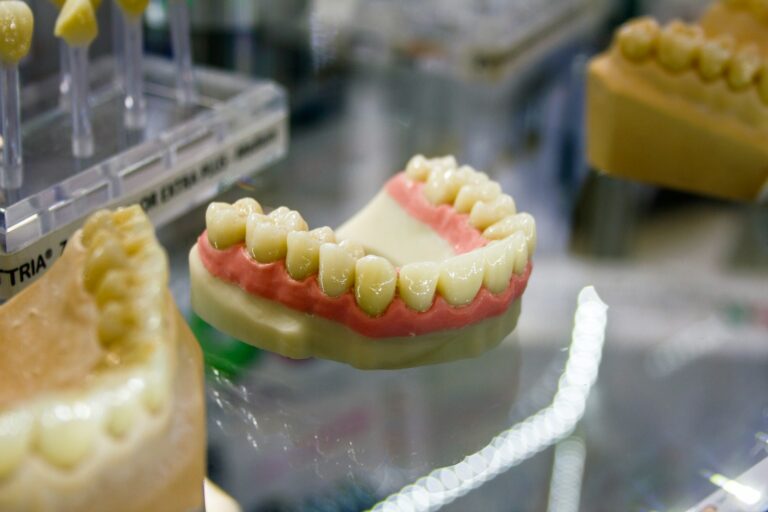
Choosing the right breast implant surgeon is an important step in ensuring you achieve the results you desire from your augmentation journey. With so many options out there, it’s essential to understand the key factors that can guide you in making an informed decision.
Choosing the Right Breast Implant Surgeon in the UK
This guide will explore crucial elements like board certification, the surgeon’s experience, and patient reviews. Additionally, it will outline important questions to ask during your consultation. You’ll also find a section highlighting red flags to watch for, helping you ensure that your choice prioritises both safety and quality.
What Are the Factors to Consider When Choosing a Breast Implant Surgeon?
When choosing a breast implant surgeon in the UK, it is important to consider several key factors to ensure you receive the best possible care and achieve your cosmetic surgery goals.
Selecting a board-certified surgeon is essential; not only should they be qualified, but they should also have significant experience in performing breast augmentations.
It is beneficial to look for testimonials from previous patients and to ask about their surgical techniques to ensure they align with your aesthetic vision.
Additionally, understanding the recovery process and confirming that the surgical facility meets safety standards are crucial steps in achieving a satisfactory outcome.
1. Board Certification
Board certification is a critical qualification to consider when choosing a breast implant surgeon, as it signifies that the surgeon has undergone rigorous training and meets established standards in the field of cosmetic surgery.
In the UK, this certification ensures that the practitioner is not only qualified but has also received extensive training specifically in breast surgery. Such expertise is essential, as it directly affects patient safety and the quality of care provided.
Surgeons who are certified by the UK General Medical Council (GMC) hold the necessary medical licences and comply with the highest standards of practice, including qualifications from the Royal College of Surgeons. This level of validation offers patients reassurance that their surgeon is committed to ongoing professional development, which is crucial in a field where techniques and technologies are continually advancing.
Ultimately, board certification fosters trust and confidence, giving patients peace of mind about their surgical decisions.
2. Experience and Expertise
The experience and expertise of a breast implant surgeon are crucial in ensuring successful surgical outcomes and high levels of patient satisfaction. Their background not only contributes to the precision of the procedure but also influences the overall comfort level of the patient throughout the entire journey.
Surgeons with extensive experience in breast augmentation typically have a profound understanding of the various techniques available, enabling them to customise each procedure to fit the individual’s unique anatomical characteristics and aesthetic desires. This adaptability fosters trust and significantly enhances the chances of achieving results that align with the patient’s personal vision.
Moreover, a surgeon’s dedication to continuous education in emerging techniques reassures patients that they are receiving top-notch care, ultimately enhancing their overall satisfaction with the experience.
3. Before and After Photos
Before and after photos serve as a valuable resource for evaluating a breast implant surgeon’s expertise and understanding the potential outcomes of the procedure.
These visual representations provide compelling evidence of the surgeon’s skill, offering a concrete glimpse into the results achieved for previous patients. They enable prospective clients to assess the surgeon’s aesthetic sensibility and consistency in delivering the desired outcomes.
Often, testimonials accompany these images, adding depth to the narrative with personal experiences that further affirm the surgeon’s capabilities. By carefully reviewing these portfolios, individuals can make more informed choices, ensuring they select a surgeon who aligns with their personal goals and aesthetic preferences.
4. Patient Reviews and Testimonials
Reading patient reviews and testimonials can provide valuable insights into a breast implant surgeon’s communication skills, professionalism, and the overall patient experience.
These personal accounts often highlight how a surgeon establishes rapport with their patients, ensuring they feel comfortable and well-informed throughout the process. Effective communication is essential, as it not only fosters trust but also allows patients to articulate their concerns and preferences clearly.
Potential patients can greatly benefit from the recommendations of those who have undergone similar procedures; these insights can significantly influence their decision-making. Ultimately, understanding the experiences of former patients can contribute to a more positive surgical journey and enhance confidence in selecting the right surgeon.
5. Consultation Process
The consultation process serves as a crucial first step in your journey towards breast augmentation, allowing you to evaluate the surgeon’s communication skills and level of empathy.
During this initial meeting, you will have the opportunity to discuss your aesthetic goals, concerns, and expectations in a welcoming environment. It is essential for patients to feel heard and understood, as this establishes a solid foundation for a successful partnership.
Open communication fosters trust, enabling the surgeon to offer personalised recommendations that cater to individual needs. As the consultation progresses, patients are encouraged to ask questions about post-operative care, as understanding what to expect after surgery is equally important.
A surgeon who exhibits empathy throughout this process can greatly enhance the overall experience, providing reassurance as patients navigate their journey towards achieving their desired results.
6. Surgical Facility Accreditation
Ensuring that breast implant surgery is conducted in an accredited surgical facility is essential for maintaining high safety standards and protecting patient well-being.
When you choose an accredited facility, you are selecting a place that adheres to stringent guidelines set by healthcare organisations focused on evaluating surgical environments. This accreditation process guarantees compliance with critical safety measures, including proper sterilisation protocols, staff training, and emergency preparedness—all of which are vital for minimising the risk of infection and complications.
Accredited facilities undergo regular monitoring to confirm they continue to meet these safety standards, which provides reassurance to patients. The emphasis on quality care not only creates a supportive environment but also contributes to positive surgical outcomes, allowing individuals to concentrate on their recovery with a sense of confidence.
7. Cost and Financing Options
Understanding the cost of breast implant surgery and the financing options available is essential for making informed financial decisions regarding this cosmetic procedure.
Navigating the various expenses associated with this type of surgery can indeed be overwhelming. It involves not only the surgical fees but also considerations such as anaesthesia, facility costs, and post-operative care.
Therefore, it is important for individuals to explore potential financing options that can help alleviate the financial burden. This may include:
- Payment plans
- Medical credit cards
- Loans specifically designed for cosmetic procedures
While many health insurance plans typically do not cover breast augmentation, as it is often viewed as elective, there may be exceptions for cases involving reconstructive surgery following mastectomy or injury. It is crucial to review coverage details and have a discussion with your insurance provider to clarify what may be available.
What Questions Should You Ask During Your Consultation?

Inquiring about the right topics during your consultation is essential for gaining a thorough understanding of the breast implant surgery process.
This includes important details regarding the associated risks, potential complications, and the surgeon’s policy on revisions.
1. Are You Board Certified?
One of the most crucial questions to consider is whether the surgeon is on the specialist register, as this reflects their qualifications and adherence to established medical standards.
Being on the specialist register signifies that a surgeon has undergone extensive training and successfully completed rigorous examinations in their specialty. This recognition ensures they possess the essential knowledge and skills required to provide optimal care.
Plus holding a basic medical licence, which permits a doctor to practise medicine, being on the specialist register illustrates a commitment to continuous education and staying current with the latest advancements in surgical techniques. This credential not only serves as a benchmark of excellence but also instils confidence in patients, reassuring them that their surgeon is dedicated to upholding the highest professional standards.
Ultimately, understanding the significance of being on the specialist register plays a vital role in helping individuals make informed decisions regarding their surgical options.
2. How Many Breast Augmentation Procedures Have You Performed?
Inquiring about the number of breast augmentation procedures a surgeon has performed can offer valuable insights into their experience and expertise in surgical techniques.
A seasoned surgeon with a substantial number of completed surgeries typically demonstrates a refined skill set, which often leads to improved surgical outcomes and increased patient satisfaction.
The importance of experience cannot be overstated, as it allows the surgeon to comprehend the complexities of individual cases, anticipate potential complications, and adjust techniques as necessary.
As the surgeon encounters diverse scenarios, their proficiency naturally increases, resulting in a higher rate of successful procedures. Patients generally feel more confident and at ease knowing that their chosen surgeon has successfully completed numerous breast augmentations, significantly enhancing their overall experience and trust in the process.
3. Can I see before and after photos of your previous patients?
Requesting to see before and after photos of previous patients is an effective way to evaluate a surgeon’s skills and the anticipated outcomes of surgery.
These images serve as compelling evidence of the surgeon’s artistry and expertise, enabling you to assess their proficiency in achieving the desired results.
It is essential to understand how to interpret these visuals; one should look for consistent improvement across various cases and pay attention to any specific techniques employed.
Combining these visuals with patient testimonials can significantly enhance your understanding, as genuine feedback often highlights the surgeon’s communication style, level of care, and follow-up practices.
Together, this combination of visual evidence and personal experiences provides a more comprehensive perspective on the surgeon’s capabilities, assisting potential patients in making informed decisions.
4. What Are the Risks and Complications of Breast Implant Surgery?
Understanding the potential risks and complications associated with breast implant surgery is essential for ensuring informed consent and effective patient education.
During the consultation process, it is important for individuals considering this procedure to communicate openly with healthcare professionals. This transparency not only builds trust but also ensures that patients are fully informed about key aspects such as potential scarring, risks related to anaesthesia, and the possibility of device rupture.
By discussing these factors openly, surgeons enable their patients to make informed decisions that align with both their health and aesthetic goals. Patients should feel encouraged to ask questions about post-surgery recovery and the longevity of the implants, as these conversations lay the foundation for a successful and satisfying experience.
5. What Type and Size of Implants Do You Recommend for Me?
Inquiring about the recommended type and size of implants is essential for aligning one’s aesthetic goals with the surgeon’s expertise.
There are various types of implants to consider, including saline, silicone, and cohesive gels, along with a range of size options. Each of these factors plays a significant role in determining the final look and feel of the results. For example, some individuals may seek a more natural appearance, which could be better accomplished with specific materials and dimensions, while others may prefer a fuller, more pronounced silhouette.
This is why personalised recommendations based on body type, lifestyle, and expectations are crucial for achieving the best possible outcome. By taking these factors into account, both the patient and the surgeon can work together effectively to create a tailored approach that aligns with individual preferences and anatomical considerations.
6. What Can I Expect During the Recovery Process?
Understanding what to expect during the recovery process is essential for preparing for breast augmentation and ensuring effective post-operative care.
Patients should recognise that the typical recovery timeline can vary, ranging from a few days to several weeks, depending on individual health factors and the specific procedure performed. In the initial days following surgery, rest is crucial. Patients may experience swelling and discomfort, making it important to adhere to the surgeon’s post-operative instructions. This includes:
- Wearing a supportive bra
- Managing pain with prescribed medication
- Avoiding strenuous activities
Follow-up care is also vital in monitoring healing and ensuring that the implants are settling correctly. Patients should be vigilant for warning signs such as excessive swelling, unusual pain, or symptoms of infection, as these may indicate complications that require immediate attention.
7. What Is Your Revision Policy?
Understanding a surgeon’s revision policy is crucial for comprehending how they manage complications and ensuring ongoing patient satisfaction.
This policy acts as an important guideline for both the surgeon and the patient, offering clarity on the procedures that will be followed in cases of unsatisfactory outcomes or unforeseen issues.
When patients know the steps their surgeon will take in these situations, it fosters a sense of trust and security, which can significantly alleviate anxiety.
A clearly defined revision policy can enhance the overall surgical experience, allowing individuals to feel more at ease throughout their recovery journey. This assurance not only nurtures positive relationships between patients and healthcare professionals but also encourages a culture of transparency and accountability within the medical community, ultimately leading to improved peace of mind for patients.
What Are the Red Flags to Watch Out for When Choosing a Breast Implant Surgeon?

When selecting a breast implant surgeon, it is essential to be mindful of potential red flags that may suggest a lack of professionalism or quality care.
These warning signs can significantly increase the risks and complications associated with the procedure. Taking the time to thoroughly evaluate a surgeon’s qualifications and approach can make a meaningful difference in ensuring a positive experience and outcome.
1. Lack of Board Certification
A lack of board certification is a significant concern when selecting a breast implant surgeon, as it raises important questions regarding their qualifications and adherence to established medical standards.
When patients choose a surgeon who is not board-certified, they may unknowingly put their own safety and health outcomes at risk. Such surgeons might not have undergone the rigorous training and ongoing education necessary to remain current with the latest surgical techniques and technologies.
This can increase the likelihood of complications, such as infections or dissatisfaction with cosmetic results. Additionally, insurance companies tend to prefer board-certified professionals, which may complicate coverage for any required revisions or additional procedures.
Ultimately, choosing a qualified, board-certified surgeon is crucial for ensuring that safety protocols are observed and that patients receive the highest standard of care.
2. Limited Experience or Specialisation in Breast Augmentation
Limited experience or a lack of specialization in breast augmentation should certainly raise concerns about a surgeon’s ability to achieve optimal results.
Breast augmentation is a complex procedure that demands a thorough understanding of various surgical techniques, along with a keen awareness of the unique anatomical considerations relevant to each patient. Surgeons who specialise in this field have refined their skills over time, which enables them to make informed decisions regarding implant selection, placement, and incisions.
These choices are critical, as they significantly impact both the aesthetic outcomes and the safety of the procedure.
Patients often express higher satisfaction levels when they receive care from experts who can anticipate their needs and offer personalised guidance. Given the intricacies involved in achieving natural-looking results while minimising complications, it is crucial to choose a surgeon with a proven track record in breast augmentation. This careful selection can ensure a positive experience and optimal long-term results.
3. Unwillingness to Show Before and After Photos
A reluctance to provide before and after photographs of previous patients can serve as a red flag, indicating a potential lack of confidence in the surgeon’s skills.
When surgeons share these visual testimonials, it enables prospective patients to assess the outcomes of various procedures, thereby establishing a foundation of trust.
Transparency in showcasing patient transformations not only underscores the effectiveness of the surgeon’s techniques but also acts as an invaluable resource for individuals seeking authentic reviews from past patients.
This openness creates an environment in which individuals feel more secure in their decisions, as they can compare results and engage in informed discussions.
Ultimately, sharing such visual evidence can enhance a surgeon’s credibility, leading to increased patient satisfaction and loyalty.
4. Poor Reviews and Testimonials
Consistently negative reviews and testimonials from previous patients should raise significant concerns regarding a surgeon’s ability to achieve patient satisfaction.
In today’s digital era, potential patients have unparalleled access to information that can greatly impact their healthcare decisions. Researching patient reviews is an essential step in assessing not only a surgeon’s technical skills but also their interpersonal qualities.
These reviews often provide insights into a surgeon’s communication style, the clarity of post-operative care instructions, and the overall patient experience—all critical indicators of potential future outcomes. By exploring these narratives, individuals can make well-informed decisions, ensuring they select a surgeon who not only values surgical excellence but also prioritises a supportive patient experience.
5. Unprofessional Consultation Process
An unprofessional consultation process can serve as a significant warning sign, suggesting inadequate communication skills and a lack of respect for the patient experience.
When a surgeon conducts consultations with professionalism, it creates an atmosphere of trust and transparency. Patients are more likely to feel heard and valued, which facilitates open discussions about their concerns and treatment options.
This respectful engagement greatly enhances the overall patient experience. Individuals are more inclined to follow recommendations and adhere to follow-up care when they feel respected and well-informed.
The manner in which a surgeon navigates this initial interaction can profoundly impact a patient’s confidence in their surgical journey. Ultimately, a professional consultation can transform what may seem like a daunting experience into a collaborative partnership focused on achieving optimal health outcomes.
6. Unaccredited Surgical Facility
Choosing a surgeon who operates in an unaccredited surgical facility presents significant risks to patient safety and the overall success of surgical outcomes.
Accredited facilities are required to follow stringent safety standards and protocols that ensure a higher level of care. This oversight not only protects patients from unnecessary complications but also creates an environment where surgical procedures are performed with a strong emphasis on hygiene and patient monitoring.
By selecting accredited surgical centres, patients play a vital role in holding healthcare providers accountable, as these facilities undergo regular evaluations to maintain quality standards. Therefore, verifying the accreditation status before proceeding with surgery is a crucial step towards ensuring a safer experience and increasing the chances of successful results.
7. Hidden or Excessive Costs
Hidden or excessive costs associated with breast augmentation can be a significant concern, highlighting the importance of transparency in financial discussions.
It is essential for anyone considering such procedures to understand all potential costs involved, from pre-operative assessments to post-surgery follow-ups. Patients should feel enableed to ask questions and seek clarity regarding pricing structures, as this proactive approach can prevent financial surprises later on.
Clear communication between the surgical team and patients fosters trust and ensures that individuals are fully informed about their financial commitments.
By engaging in open conversations about pricing, patients will be better equipped to make informed decisions and plan accordingly, ultimately leading to a more satisfactory surgical experience overall.
Frequently Asked Questions
What should I consider when choosing a breast implant surgeon in the UK?
When choosing a breast implant surgeon in the UK, it is important to consider their credentials, experience, and reputation. Look for a surgeon who is board-certified, has extensive experience in performing breast implant surgeries, and has positive reviews from previous patients. It is also important to consider their specific techniques and approach to breast augmentation, as well as their patient satisfaction rates.
How can I ensure that the breast implant surgeon I choose is qualified?
To ensure that the breast implant surgeon you choose is qualified, make sure they are certified by the General Medical Council (GMC) and a member of the British Association of Plastic, Reconstructive and Aesthetic Surgeons (BAPRAS). You can also research their educational background, training, and any additional certifications they may have.
What should I look for during a consultation with a breast implant surgeon?
During a consultation with a breast implant surgeon, you should ask about their experience, credentials, and any potential risks or complications associated with the procedure. You should also discuss your desired results and ask to see before and after photos of previous patients. This is also a good opportunity to ask about the surgeon’s facility and the recovery process.
Can I see examples of the surgeon’s previous work?
Yes, it is important to see examples of the surgeon’s previous work to get an idea of their skill and to ensure they can achieve the results you desire. Ask to see before and after photos of previous patients with similar body types and desired outcomes. This can also give you a better understanding of the surgeon’s aesthetic style.
Are there any red flags I should look out for when choosing a breast implant surgeon?
Yes, there are a few red flags to look out for when choosing a breast implant surgeon. If a surgeon does not have proper credentials, is not transparent about their experience or past results, or makes unrealistic promises, these can be warning signs. It is important to carefully research and thoroughly vet any surgeon you are considering.
Is it important to feel comfortable with my breast implant surgeon?
Yes, it is important to feel comfortable with your breast implant surgeon. This is a major surgery and you will be entrusting your body and health to this individual. You should feel comfortable asking questions, expressing your concerns, and discussing your desired results. If you do not feel comfortable with a surgeon, it is okay to continue searching for a better fit.






